A Promissory Note is a great tool to protect a good portion of a nursing home Medicaid applicant’s life savings. Promissory notes are loans between the applicant and the borrower. The borrower promises to pay the applicant in monthly increments until the note is satisfied.
Lets explore the issue more closely and see how it applies and saves the applicant some or most of their life savings.
Example:
Suppose a single person saved $244k and their life time and are in need of nursing home care. Technically the nursing home would require the applicant to spenddown the $244k and once impoverished they would file the nursing home Medicaid application; however, if the applicant used a promissory note the figures would look a little different.
Suppose the nursing home cost is $12,157 per month (the same regional rate imposed by NYS Income and Resource Standards. The regional rate means that for every $12,157 transferred Medicaid will impose a one month penalty period. Penalty period means that Medicaid will not pay the nursing home during the penalty period. That means $12,157 transferred equal one month of penalty, and if the applicant transfers $121,570 the applicant will be disqualified for 10 months.
Lets go back to the applicant who saved $244k in their life time. The applicant would transfer 50% to anyone they wished and then purchase a promissory note for the other 50%. The borrower will pay the applicant in monthly increments and the applicant will use that money to pay the nursing home for the penalty period the first 50% created.
The above example reflects a 50% savings; however, the equation can change either way depending on the cost of the nursing home and the applicant’s income. That means some applicants can save more while some can save less, but no matter how you look at the issue a promissory note saves money for all Medicaid nursing home applicants.

